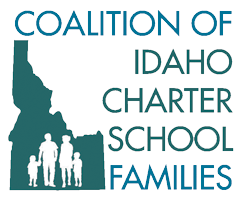Governor Appoints New Education Task Force "Our Kids, Idaho's Future"
/The Governor’s Education Task Force: “Our Kids, Idaho’s Future"
Governor Brad Little appointed a 26-member task force which recently held its first meeting. After an address from a state economist and Governor Little, the task force entered into an organizational discussion about future meetings, subcommittees and its mission. The task force consists of education stakeholders from around the state -- with both familiar and new faces. You can read more about the task force here.
Governor Little’s “Our Kids, Idaho’s Future” Task Force members include:
Task Force Members
Teachers, School Administrators, and Education Stakeholders
Debbie Critchfield, President, Idaho State Board of Education — Co-Chair
Sherri Ybarra, Superintendent of Public Instruction
Marc Beitia, American Falls High School teacher and 2019 Idaho Teacher of the Year
Kari Overall, President, Idaho Education Association
Jennifer Parkins, Board Chair, Genesee Joint School District and Idaho School Boards Association (ISBA) President
Jody Hendrickx, Trustee, St. Maries School District and ISBA Vice President
Erin McCandless, Idaho State PTA President
Mary Ann Ranells, Superintendent, West Ada School District
Luke Schroeder, Superintendent, Kimberly School District
Cheryl Charlton, Superintendent, Idaho Digital Learning Academy
Pete Koehler, retired Chief Deputy Superintendent and former Nampa High School Principal and Superintendent
Terry Ryan, CEO, Bluum, Boise
Business Leaders
Bill Gilbert, Co-Founder and Managing Director, Caprock, Boise — Co-Chair
Kurt Liebich, CEO, RedBuilt, Boise
Matt Van Vleet, Government Affairs Director, Schweitzer Engineering Laboratories, Lewiston
Katherine Hart, Associate General Counsel, Melaleuca, Idaho Falls
Juan Alvarez, Deputy Director for Management and Operations, INL, Idaho Falls
Shawn Keough, Executive Director, Associated Logging Contractors, Coeur d’Alene
Legislators
Senator Chuck Winder, Majority Leader, Idaho Senate
Senator Dean Mortimer, Idaho Senate Education Committee
Senator Janie Ward-Engelking, Idaho Senate Education Committee and Joint Finance-Appropriations Committee
Representative Mat Erpelding, Minority Leader, Idaho House of Representatives
Representative Jason Monks, Assistant Majority Leader, Idaho House of Representatives
Representative Lance Clow, Idaho House Education Committee
Representative Gary Marshall, Idaho House Education Committee
Representative Wendy Horman, Joint Finance-Appropriations Committee

